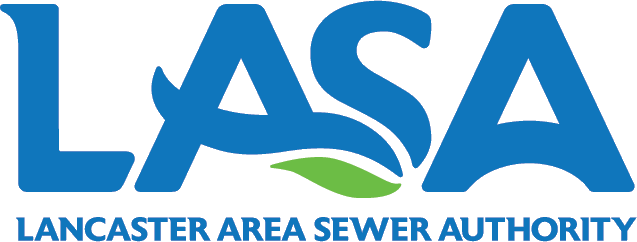Disposal Recommendations
Please refer to the Water Environment Federation’s Household Hazardous Waste Chart for disposal recommendations for common chemicals used in your kitchen, bathroom, garage and garden. See below for additional guidance.
Pharmaceuticals and Personal Care Products
Pharmaceuticals and Personal Care  Products include the following:
Products include the following:
- Prescription and over-the counter therapeutic drugs
- Veterinary drugs
- Fragrances
- Cosmetics
- Sun-screen products
- Diagnostic agents
- Nutraceuticals (e.g., vitamins)
Individuals add Pharmaceuticals and Personal Care Products to the environment through excretion, bathing, and the disposal of unused medication in the sewer or trash. LASA recommends utilizing Pennsylvania’s Prescription Drug Take-Back Program for the disposal of unused Pharmaceuticals and Personal Care Products. Additional information provided by the Pennsylvania Department of Drug and Alcohol Programs can be found here.
Fats, Oils and Grease
Fats, Oils and Grease (FOG) are composed of animal and vegetable fats and oils that are used to cook and prepare food. Typically, FOG enters a plumbing system from dishwashing, floor cleaning, and equipment sanitation. Sanitary sewer systems are neither designed nor equipped to handle the FOG that can accumulate on the interior of the sewer collection system pipes from improperly maintained discharges. These accumulations may cause a sanitary sewer overflow (SSO). A SSO is the unintentional flow of untreated sewage onto the ground or into a facility, home, or waterway. SSOs create a health risk to the public, damage property, and pollute our environment.
 Domestic Users are encouraged to follow the following guidelines:
Domestic Users are encouraged to follow the following guidelines:
- Do not pour fats, oil, or grease down the drain.
- Soak up the grease after frying with paper towels and put into the garbage.
- Pour larger amounts of used cooking grease into a container with a lid. Allow grease to harden and then place into the garbage.
- Put strainers in sink drains to catch food scraps and other solids and empty them into the garbage.
- Minimize the use of your garbage disposal. Put food scraps into the garbage.
- Never pour motor oil down the drain.
Commercial customers are encouraged to read and follow LASA’s FOG Best Management Practices (BMP) Manual, for the proper way to dispose of FOG.
Whether you’re a business that generates FOG or a resident, you’re encouraged to do your part to help prevent sewer blockages. By properly disposing of fats, oils, and grease you will benefit your business, your home, your pocketbook, and your community.
Hazardous Materials
The Lancaster County Solid Waste Management Authority (LCSWMA) operates a Household Hazardous Waste Facility for the disposal of various wastes that should not be discharged to the sewer. Please visit the LCSWMA website for a current list of materials they accept.
Disposable Wipes
Grinder Pumps
Except as otherwise provided in the Authority Rules and Regulations, no user discharging to an Authority-owned Grinder Pump System shall discharge or cause to be discharged into Grinder Pump System any sewage, industrial waste, pollutant or other matter or substance containing:
 Diapers, baby wipes, adult wipes, or shop rags
Diapers, baby wipes, adult wipes, or shop rags- Feminine products, sanitary napkins or tampons of any kind
- Cloth of any kind
- Glass or metal or plastic products of any kind
- Excessive amounts of oil and grease of any kind
- Lubricating oils
- Kitty litter
- Other large non-wastewater items such as toys
- Seafood shells
- Explosive or flammable materials, including but not limited to gasoline or kerosene
- Paint thinner, solvents, or antifreeze
